#Herb medicine companies in India
Explore tagged Tumblr posts
Text
Herb Medicine For Gaining Weight And Losing Weight Quickly

If you want to lose weight and gain weight quickly, herbal medicine can help you do so. Select the appropriate herb supplement and herb medicine from herb medicine manufacturers in India at a reasonable price. These medications and supplements will help you gain and lose weight in a short period of time.
Here are some medicine and supplement for weight gain and weight loss
Herbs for Weight Gain:
Ashwagandha: This adaptogenic herb is believed to help increase appetite and promote weight gain in some individuals by reducing stress and anxiety.
Licorice Root: Licorice root may help in weight gain by improving digestion and increasing appetite.
Dandelion Root: Dandelion root is thought to stimulate appetite and improve digestion, potentially aiding in weight gain.
Ginger: Ginger can stimulate digestion and increase appetite, which may indirectly contribute to weight gain.
Herbs for Weight Loss:
Green Tea: Green tea contains catechins and caffeine, which are believed to boost metabolism and aid in fat burning.
Garcinia Cambogia: This tropical fruit extract contains hydroxycitric acid (HCA), which is thought to inhibit the conversion of carbohydrates into fat and suppress appetite.
Ginseng: Ginseng may help increase energy levels and metabolism, potentially aiding in weight loss.
Cayenne Pepper: Cayenne pepper contains capsaicin, which may boost metabolism and reduce appetite.
Always remember to consult with a healthcare professional before using any herbal remedies, especially if you have underlying health conditions or are taking medications, as they may interact with each other. Additionally, it's essential to combine any herbal treatments with a balanced diet and regular exercise for optimal results in weight management. Choose the right herb products for weight gain and weight loss from the herb medicine manufacturers in India at affordable price.
#Herb medicine manufacturers in India#Herb medicine suppliers in India#Herb medicine companies in India
0 notes
Text
Indian Herbal Remedies: A Leading Herbal Company in India Specializing in Indian Medicine Herbs
India has long been recognized as the land of Ayurveda and natural healing, where the ancient practice of using herbs for medicinal purposes has been deeply ingrained in the culture. Today, as more people turn towards holistic and natural remedies for their health concerns, Indian herbal companies have emerged as trusted sources of high-quality herbal solutions. Among these, Indian Herbal Remedies stands out as a leading herbal company in India, offering a range of potent Indian medicine herbs that support a balanced and healthy lifestyle.

The Role of Herbal Companies in India’s Wellness Journey
India’s herbal heritage is rich, dating back thousands of years to the roots of Ayurveda. The holistic approach of Ayurveda focuses on restoring balance within the body, mind, and spirit. This ancient wisdom has made India a global hub for herbal medicine, with numerous companies committed to preserving and promoting these time-tested practices.
A herbal company in India like Indian Herbal Remedies combines the knowledge of Ayurveda with modern research, creating natural products that help address various health concerns. From stress management and immunity boosting to skincare and digestive health, Indian medicine herbs offer a versatile and effective alternative to chemical-based products.
Why Choose Indian Medicine Herbs?
The demand for Indian medicine herbs has grown significantly in recent years, as more people seek out natural ways to enhance their well-being. Here are a few reasons why Indian medicine herbs are becoming a preferred choice for those looking for natural remedies:
1. Natural and Chemical-Free:
Indian medicine herbs are derived directly from nature, making them free of synthetic chemicals and harmful additives. This makes them a safer option for people seeking alternatives to conventional medicines, which often come with unwanted side effects.
2. Holistic Healing:
Unlike synthetic medications that often focus on treating symptoms, Indian medicine herbs work by addressing the root cause of health issues. This holistic approach ensures long-lasting benefits and supports overall well-being. By using herbs that balance the body’s internal systems, Ayurveda promotes a harmonious state of health.
3. Backed by Ancient Wisdom:
Ayurveda, which means “science of life,” has been practiced in India for thousands of years. This ancient system has identified the healing properties of countless herbs, and modern research continues to validate these benefits. Companies like Indian Herbal Remedies harness this deep-rooted knowledge to create effective herbal formulations.
4. Sustainable and Eco-Friendly:
A reputable herbal company in India is committed to sustainable practices, ensuring that herbs are grown, harvested, and processed in an eco-friendly manner. At Indian Herbal Remedies, we prioritize ethical sourcing, ensuring that our products are not only good for your health but also for the planet.
Popular Indian Medicine Herbs Offered by Indian Herbal Remedies
At Indian Herbal Remedies, we offer a wide range of Indian medicine herbs that cater to various health needs. Here are some of our most popular herbs and their benefits:
1. Ashwagandha (Withania somnifera)
Ashwagandha, known as the “Indian ginseng,” is a powerful adaptogen that helps the body cope with stress. It is also known for boosting energy levels, improving concentration, and supporting reproductive health.
Key Benefits:
Reduces stress and anxiety
Improves memory and cognitive function
Enhances physical stamina
Supports immune function
2. Turmeric (Curcuma longa)
Turmeric is one of the most well-known Indian medicine herbs, famous for its anti-inflammatory and antioxidant properties. Its active ingredient, curcumin, helps to reduce inflammation, improve digestion, and strengthen the immune system.
Key Benefits:
Reduces inflammation
Promotes digestive health
Supports joint and skin health
Boosts immunity
3. Neem (Azadirachta indica)
Neem has been revered in Indian medicine for its antibacterial, antiviral, and antifungal properties. It is commonly used to treat skin conditions, detoxify the body, and support oral health.
Key Benefits:
Treats acne and skin conditions
Promotes detoxification
Supports oral and dental health
Boosts immune function
4. Triphala
Triphala is a blend of three powerful fruits—Amalaki, Bibhitaki, and Haritaki—making it a potent herbal remedy for digestion and detoxification. It is a staple in Ayurvedic medicine for promoting digestive balance and overall well-being.
Key Benefits:
Supports digestive health
Promotes detoxification
Enhances skin health
Strengthens the immune system
Why Indian Herbal Remedies is a Trusted Herbal Company in India
At Indian Herbal Remedies, we are dedicated to offering high-quality Indian medicine herbs that align with the principles of Ayurveda. Our mission is to provide safe, effective, and natural solutions to support your health journey. Here’s what sets us apart as a leading herbal company in India:
1. Quality Assurance:
We prioritize quality at every stage of production, from sourcing raw herbs to processing and packaging. Our products undergo rigorous quality checks to ensure that you receive pure, potent, and safe herbal remedies.
2. Sustainable Practices:
As a responsible herbal company in India, we are committed to sustainable and ethical sourcing practices. We work closely with local farmers to ensure that our herbs are grown in their natural habitats, without the use of harmful chemicals.
3. Holistic Approach:
Our product range is designed to address a wide range of health concerns, providing holistic solutions that go beyond simply treating symptoms. Whether you’re looking to boost your immunity, manage stress, or enhance your skin health, we have products tailored to meet your needs.
4. Customer Satisfaction:
At Indian Herbal Remedies, customer satisfaction is our top priority. We are committed to providing an excellent shopping experience, offering detailed information about our products and their benefits, so that you can make informed choices for your health.
Conclusion: Embrace Natural Healing with Indian Herbal Remedies
As a leading herbal company in India, Indian Herbal Remedies is your trusted partner for high-quality Indian medicine herbs. Our products are crafted with care, combining ancient Ayurvedic wisdom with modern quality standards to provide effective solutions for your health and wellness needs. Whether you’re new to herbal remedies or a seasoned enthusiast, our range of natural products offers a safe and gentle way to support your well-being.
Explore our wide selection of herbal products and experience the benefits of nature’s best remedies. With Indian Herbal Remedies, you can trust that you’re getting the finest herbs that India has to offer, delivered right to your door. Start your journey towards holistic health today.
0 notes
Text
in addition to being prone to an obvious naturalistic fallacy, the oft-repeated claim that various supplements / herbs / botanicals are being somehow suppressed by pharmaceutical interests seeking to protect their own profits ('they would rather sell you a pill') belies a clear misunderstanding of the relationship between 'industrial' pharmacology and plant matter. bioprospecting, the search for plants and molecular components of plants that can be developed into commercial products, has been one of the economic motivations and rationalisations for european colonialism and imperialism since the so-called 'age of exploration'. state-funded bioprospectors specifically sought 'exotic' plants that could be imported to europe and sold as food or materia medica—often both, as in the cases of coffee or chocolate—or, even better, cultivated in 'economic' botanical gardens attached to universities, medical schools, or royal palaces and scientific institutions.
this fundamental attitude toward the knowledge systems and medical practices of colonised people—the position, characterising eg much 'ethnobotany', that such knowledge is a resource for imperialist powers and pharmaceutical manufacturers to mine and profit from—is not some kind of bygone historical relic. for example, since the 1880s companies including pfizer, bristol-myers squibb, and unilever have sought to create pharmaceuticals from african medicinal plants, such as strophanthus, cryptolepis, and grains of paradise. in india, state-created databases of valuable 'traditional' medicines have appeared partly in response to a revival of bioprospecting since the 1980s, in an increasingly bureaucratised form characterised by profit-sharing agreements between scientists and local communities that has nonetheless been referred to as "biocapitalism". a 1990 paper published in the proceedings of the novartis foundation symposium (then the ciba foundation symposium) spelled out this form of epistemic colonialism quite bluntly:
Ethnobotany, ethnomedicine, folk medicine and traditional medicine can provide information that is useful as a 'pre-screen' to select plants for experimental pharmacological studies.
there is no inherent oppositional relationship between pharmaceutical industry and 'natural' or plant-based cures. there are of course plenty of examples of bioprospecting that failed to translate into consumer markets: ginseng, introduced to europe in the 17th century through the mercantile system and the east india company, found only limited success in european pharmacology. and there are cases in which knowledge with potential market value has actually been suppressed for other reasons: the peacock flower, used as an abortifacient in the west indies, was 'discovered' by colonial bioprospectors in the 18th century; the plant itself moved easily to europe, but knowledge of its use in reproductive medicine became the subject of a "culturally cultivated ignorance," resulting from a combination of funding priorities, national policies, colonial trade patterns, gender politics, and the functioning of scientific institutions. this form of knowledge suppression was never the result of a conflict wherein bioprospectors or pharmacists viewed the peacock flower as a threat to their own profits; on the contrary, they essentially sacrificed potential financial benefits as a result of the political and social factors that made abortifacient knowledge 'unknowable' in certain state and commercial contexts.
exploitation of plant matter in pharmacology is not a frictionless or infallible process. but the sort of conspiratorial thinking that attempts to position plant therapeutics and 'big pharma' as oppositional or competitive forces is an ahistorical and opportunistic example of appealing to nominally anti-capitalist rhetoric without any deeper understanding of the actual mechanisms of capitalism and colonialism at play. this is of course true whether or not the person making such claims has any personal financial stake in them, though it is of course also true that, often, they do hold such stakes.
537 notes
·
View notes
Text
What Exactly Is Sannyo Smoking?

Well of course it sucks Mamizou, don't you remember what she said it's made of?

Now, an herb you can smoke that can grow on a mountain. The first, most obvious, initial guess would be marijuana. It's a weed after all, it can grow basically anywhere. Plus, let us be honest, it would be a little funny.
marijuana can definitely grow on mountains, it even grows on mountains in Central Asia
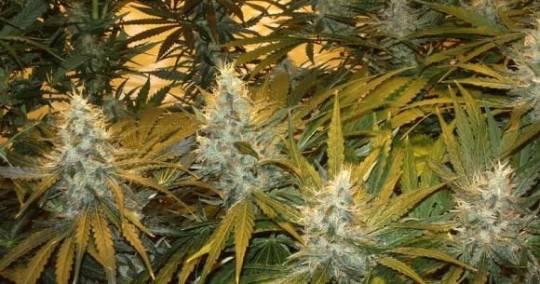
Plus, it is apparently spreading over northern Japan right now as a weed. They used to grow it for hemp material, not to smoke, it would probably not do much, but that wouldn't stop Sannyo if she wanted to give it a shot.
(Except I'm deliberately teasing)
There is a very, very obvious reason why it's not marijuana.
Marijuana has no nicotine, even though you can smoke it, it's not by any stretch of the imagination "tobacco"
Even if we imagine a world where this is the only thing Sannyo ever smoked, Mamizou smoked it with her and just said it was bad tobacco, not to mention Mamizou has recently been to the outside world and would probably know weed in seconds. (Which, although hypothetical, would have made for a hilarious Mamizou thought bubble)
We are looking for "tobacco" after all, we need nicotine, not just anything you can smoke, but it's a weed and a popular joke, so I obviously had to tease.

I could go through every variant of wild Nicotiana, tobacco was even imported to Japan by Portuguese sailors in 1542, and it's cultivation was legalized in 1625. The Hakurei barrier was formed in 1885, that's actually plenty of time for actual wild tobacco to spread.
But it might not work either.
While we might find some enthusiastic and previously cultivated tobacco growing as a weed that spread up to the mountains, it's not going to be unique enough. It'll be growing all over the place by the time it gets up a mountain. And the village would be smoking that exact same thing.
But most importantly, it's no fun.
Truth be told, there is a genus of Nicotiana that would work well in mountains, furthermore, Portugal actually had some at the time as an import from the Americas. But thats no fun, so I'll just return to this later when I inevitably run out of exotic options.
After all, if its tobacco made from "herbs" it would boarder on cheating to just use nicotiana, regardless of the form it ends up in.
Thankfully, there are other herbs and weeds beyond nicotiana that actually have nicotine, it really would be worthwhile check one of those.
And I've got a fun one. A whole family in fact.
Just above the Genus: "Nicotiana" is the Tribe: "Nicotianeae" and above that we find the family Solanaceae.

The Solanaceae, also known as the potato or deadly nightshade family
Nicotine is a naturally produced alkaloid in the nightshade family of plants
It contains everything from eggplants and other vegetables to the infamous Deadly Nightshade. (Atropa belladonna)
And of course, like I said, further down the family, it even has nicotiana itself. All of them contain nicotine to some greater or lesser extent. (Yes, hilariously even eggplants, a little bit)
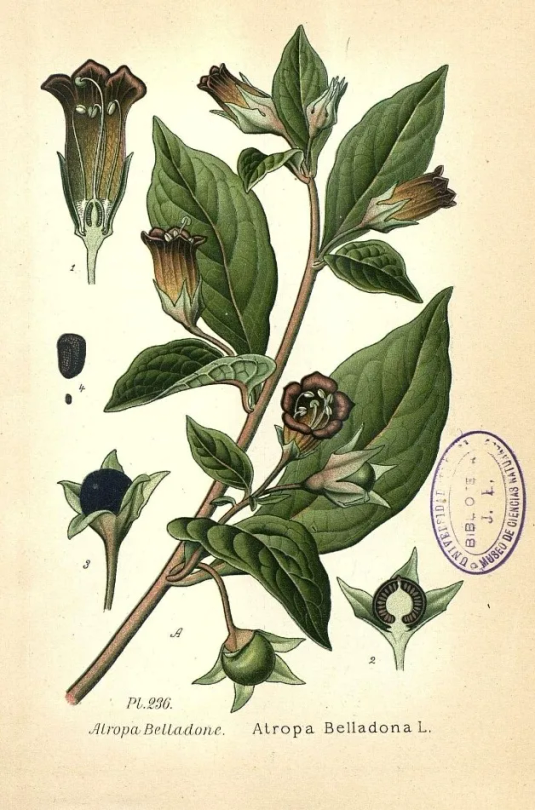
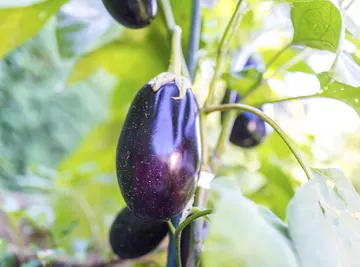
Solanaceae consists of about 98 genera and some 2,700 species. They grow naturally in more parts of the world than wild Nicotiana.
But we are just going to be looking through the nightshade variations, maybe some fruit, but no potatoes today. And these are coveniently famous for their narcotic effects.
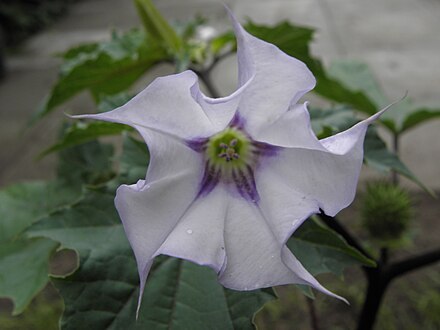
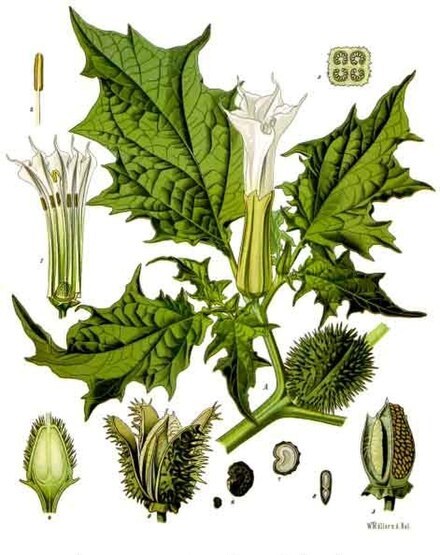
And some varieties, such as the Datura stramonium (occasionally called the Devil's Trumpet) had its leaves smoked in pipes and cigarettes, so much they were traded by the East India Company in the 18th century. And since it was popular for traditional medicine, some people might have even planted it.
But that type is not native to Japan, so it's got the same problem as the nicotiana. Not to mention, even though its an invasive weed, and can survive a little below the freezing point, in its current state, it probably doesn't like mountains. It probably wouldn't last a full winter on one.
This might be definite enough to just say it can be some hypothetical, wild, non specific variation of nightshade with the right combination of alkaloids and nicotine and presumably, relatively non deadly in the form Sannyo uses it.
Or maybe it is just better adapted to mountains form of imported of the Datura stramonium I just mentioned. I doubt even if it spread like a weed, that anyone but Sannyo would bother to figure out you can smoke that type of plant as tobacco.
But we are mostly just having fun at this point.
I doubt we could possibly think Zun cared up to this point, and definitely not beyond this point, we are just doing a fun overanalysis after all. Zun almost always seems to go for extinct species anyway, so it wouldn't be fun to follow that train of thought regardless..
[But if we just want a probable canonical answer Zun thought up. He might have just meant some non specific extinct variation of nightshade, since if there is at least one native version then that's enough to claim there could have once been others,
Besides, it's even possible zun just imagined she could possibly even mix her favorite flowers somehow, which while she probably could not, it would definitely be cute. ]
But we are going to take this further anyway to see if we can find something real and possible that currently exists today.
The simplest thing to think of native to Japan is just Japanese belladonna (Zun's proof of concept for an imaginary extinct nightshade if he really wanted a hypothetical one)
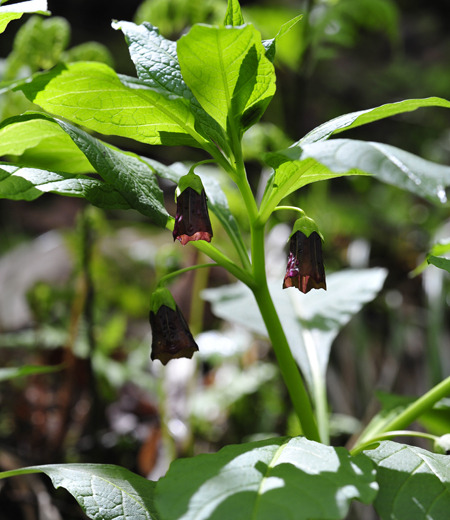
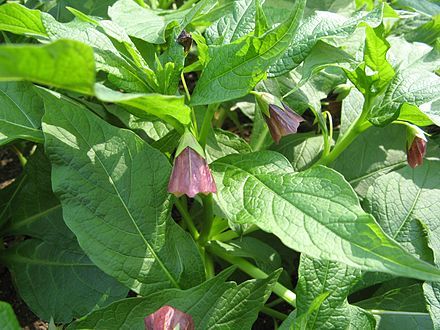
Scopolia japonica, also called Japanese belladonna. It's about as dangerous as the name implies. If eaten by mistake it can cause hallucinations. And while it no doubt contains at least some nicotine, it also contains the alkaloids Scopolamine
And more hilariously Hyoscyamine, known for helping the colon or bladder...
yes, you can use this extract to help you poop or pee if you want too.
Which is even funnier than the marijuana joke i made earlier.
And the only other species in the Scopolia genus is pretty similar and in Korea.
So we'll want to find something different.
But we are trapped. We only have imports left.
And the Datura genus we'd likely want is stuck in the Americas so we can only really consider a variety that came from those possible 18th century imports of Datura stramonium.


They are pretty perfect, tbh, spread widely to the Old World early where it has also become naturalized, and since it was already a weed that could endure dry climate and fairly cold environments. It could probably spread up a mountain.
They are our best bet for something you can smoke for recreation, with nicotine, outside the nicotiana genus that only Sannyo would use. If smoked people used its properties for recreation but you can also use it for anesthesia. Inject it's primary ingredient Atropine and you can use it for all sorts of weird stuff. (Though I pretty much resigned myself to having Atropine in the plant the moment I decided to run up and down the nightshade family).
Though in truth, she's probably just smoking wild tobacco that has lost a lot of flavor while struggling to adapt the mountain. So I'll move on to the most likely answer.
Portugal's more early tobacco is Nicotiana rustica, also called Aztec tobacco.
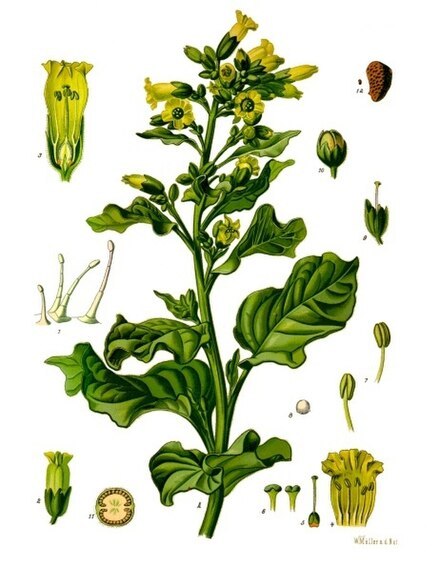
It is pretty tough and would probably adapt to a mountain pretty well.
I'd like to think it's the Datura stramonium since it's cooler and weird though.
In overview:
The simplest, best answer is just wild imported Aztec tobacco (Nicotiana rustica) from Portugal. Which had trade with Japan open up extremely early. Its honestly perfect for this

Followed by the more provocative option of Devil's Trumpet (Datura stramonium) imported later in the 18th century.

and the funny option. The only one actually native to Japan
Japanese belladonna (Scopolia japonica)

But it's almost definitely just that Aztec tobacco. (Nicotiana rustica)

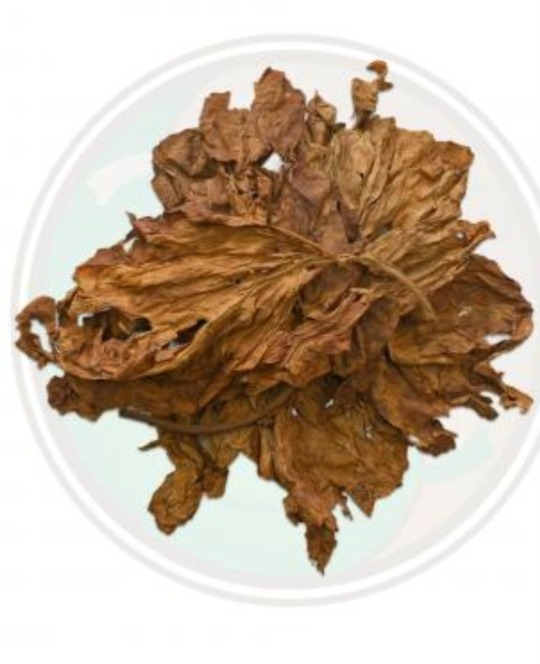
We could just imagine she mixes flowers or herbs into it to validate her "herbs" comment if we want (which again, would be cute)
#sannyo komakusa#touhou project#Flowers#Smoking#This took me collectively more than 16 hours#I had a ton of fun up until the point I realized Japan had like only one native option and was basically stuck with imports completely.#lotus eaters#It's probably just the Aztec tobacco but I felt obligated to run through looking for native nightshade#I'll need to make a short version later.#It's funny that I've imagined a world Sannyo would give smoking almost anything she comes across a shot if nicotine is involved.#mamizou futatsuiwa
34 notes
·
View notes
Text
Increasing Demand for Ayurvedic Pain Relief Oil

Indians have been using Ayurvedic pain relief oil since ancient times. Ayurveda is rooted deeply in Indian culture and history. In those ancient times, Indians were aware of the medicinal properties of herbs and plants. Therefore, they were using a blend of those herbs and plant extracts to relieve pain in joints and muscles. In modern times, we precure our knowledge and heritage of Ayurveda to produce and manufacture the same Ayurvedic pain-relieving oil. The only difference is that we manufacture and pack them in modern packaging for public use. But it is the same old essence of ancient Ayurveda and herbal medicine.
There are many recognized Ayurvedic Medicine Manufacturers in India that are making very effective and mint quality Ayurvedic herbal pain oils. These herbal oils are effective in relieving muscle and joint pain. Most of the time, they are very effective in treating common body pain. Pain around the knees, wrists, and musculoskeletal joints can be relieved by using an effective Ayurvedic painkiller oil.
These oils are blends of selective and effective plant and herb extracts. This oil penetrates the skin and provides relief from pain and swelling. Rubbing affected areas also improves blood circulation, which eventually relaxes the muscles and provides relief from strain and stiffness. In total, these Ayurvedic painkiller oils are very effective and safe to use.
Uses and Benefits of Ayurvedic Pain Relief Oil
Herbal and Ayurvedic painkiller oils are safe to use. Anyone suffering from joint and muscle pain can use these oils for a longer period of time. Being herbal in nature, they do not produce any side effects. Herbally blended oils are extremely effective in treating chronic muscle and joint pains. These oils have inflammatory properties that reduce swelling and provide relaxation to muscles from stiffness and strains. They are able to cure mostly all types of muscles and pain associated with bones.
These Ayurvedic Pain Relief Oil are best for both osteoarthritis and arthritis. They can provide relief for a long time.
Best Ayurvedic Medicine Manufacturers in India
As we know, India is a land of Ayurveda. This is why Indians have faith and trust in Ayurvedic medicinal treatment methods. India is the biggest market for Ayurvedic and herbal products.
To meet this huge market demand for herbal medicines, manufacturing companies in India are producing very large quantities of herbal products. These big manufacturers also provide lucrative Ayurvedic PCD franchises for herbal medicines and products.
Ayurvedic PCD franchises products are one of the most profitable business ventures in recent times. Since the Indian consumer market for herbal and Ayurvedic products is huge, these PCD franchise programs are creating tons of opportunities to grow in the pharma market. And Casca Remedies is one of those PCD pharma franchises that enables its partner to expand and grow in the pharma market as an individual entrepreneur.
Their inhouse Ayurvedic painkiller oil, EVOJOINT, is best selling product on the market. That is why Casca Remedies is best for owning an Ayurvedic pharma franchise.
#Ayurvedic Pain Relief Oil#pcd pharma franchise#Ayurvedic PCD franchises#Ayurvedic PCD#ayurvedicmedicine
3 notes
·
View notes
Text
Weilong, became a unicorn with its Latiao and konjac shuang
Weilong is about to go public. The $60 billion Chinese snack company has grown up on addictive Chinese spicy snacks such as Latiao and konjac shuang.
Konjac, which scientific name is Amorphophallus konjac, is an herb native to southwestern China, Japan, India, Sri Lanka, the Malay Peninsula and other regions. Konjac has a long history of cultivation and use in China, in the “Ben Cao Tu Jing” “Ben Cao Gang Mu” and other ancient books have been recorded. Konjac has cold properties, tastes flat, as a medicinal herb that can reduce swelling and…

View On WordPress
2 notes
·
View notes
Text
Healthy forests, healthy planet, healthy humans.
youtube

Forests are often called the lungs of the planet, because they absorb harmful carbon dioxide and produce life-giving oxygen so it’s no exaggeration to equate healthy forests with healthy people, the theme of this year’s International Day of Forests.
Covering 31 per cent of Earth’s land and providing a home to 80 per cent of all land-based species, forests are crucial to human health and well-being, but their loss across the planet is threatening people everywhere.
Here are five things you need to know about the age-old and ever-growing interlinked relationship between forests and human health.

CityAdapt - Forests are key to building climate resilience.
1. Carbon sinks combat climate change
Forest ecosystems keep the planet healthy by regulating the climate, rainfall patterns, and watersheds and crucially provide the oxygen which is essential to human existence.
Healthy forests help to keep climate change in check by acting as “carbon sinks”, which annually absorb about two billion tonnes of carbon dioxide, the gas which is contributing to climate change and the increase of temperatures globally.
The rapidly changing climate is threatening the very existence of people in many different ways: through death and illness due to extreme weather events, the disruption of food systems, and the increase in diseases. Simply put, without healthy forests, people around the world, especially in the world’s most vulnerable countries, will struggle to lead healthy lives and maybe even to survive.

UN-REDD Forest products are processed into medicine in Viet Nam.
2. Nature’s pharmacies: from masks to medicine cabinets
From masks to medicines, forest products are used around the world every day. As many as 80 per cent of developing nations and one quarter of developed countries depend on plant-based medicinal drugs.
Forests contain about 50,000 plant species used for medicinal purposes by both local communities and multinational pharmaceutical companies. For millennia, forest dwellers have treated a range of ailments using products they have harvested. At the same time, many common pharmaceutical medicines are rooted in forest plants, including cancer-treating drugs from the Madagascar periwinkle and malaria medication, quinine, from cinchona trees.
The One Health approach, launched as part of the UN response to the COVID-19 pandemic, recognizes that the health of humans, animals, plants, and the wider environment, including forests, are closely linked and interdependent.

© FAO/ A woman carries goods through Uluguru Nature Forest Reserve in Morogoro, Tanzania.
3. Dinner for 1 billion people
Nearly one billion people globally depend on harvesting wild food such as herbs, fruits, nuts, meat, and insects for nutritious diets. In some remote tropical areas, the consumption of wild animals is estimated to cover between 60 and 80 per cent of daily protein needs.
A study from 43,000 households across 27 countries in Africa found that the dietary diversity of children exposed to forests was at least 25 per cent higher than those who were not.
In 22 countries in Asia and Africa, including both industrialized and developing countries, researchers found that indigenous communities use an average of 120 wild foods per community, and in India, an estimated 50 million households supplement their diets with fruits gathered from wildland forests and surrounding bushland.

UNDP Timor-Leste / Communities in Timor-Leste are helping to restore mangrove forests.
4. Forests are crucial for sustainable development
Forests provide goods and services, employment, and income to perhaps 2.5 billion people worldwide; that’s around one third of the global population.
Keeping forests – and humans – healthy is also at the heart of sustainable development and the 2030 Agenda. Woodlands play a key role in advancing progress across the Sustainable Development Goals (SDGs), including:
SDG 3 Well-being: Woodlands feel good. Studies show that spending time in forests can boost immune systems while elevating positive emotions and lowering stress, blood pressure, depression, fatigue, anxiety, and tension. Human health and well-being depend on the natural environment, which provides such essential benefits as clean air, water, healthy soils, and food.
SDG 6 Water: Forests play a filtering role in providing freshwater. About 75 per cent of the world’s accessible freshwater comes from forested watersheds. By feeding rivers, forests supply drinking water for nearly half of the world’s largest cities. Threats to forests could trigger water shortages and put global freshwater resources at risk for people across the world, which are among urgent issues addressed at the forthcoming UN 2023 Water Conference.
SDG 13 Climate action: The woods buffer the impacts of storms and floods, protecting human health and safety during extreme weather events. For centuries, forests have acted as nature’s socio-economic safety nets in times of crisis. Sustainably managed and protected forests mean enhanced health and safety for all.

Deforestation continues despite international calls to protect forests.
5. Forests need protecting
The wide-ranging benefits of forests are well known, but that doesn’t mean they are offered the protection that they perhaps deserve. Fire, insect-damage and deforestation have accounted for up to 150 million hectares of forest loss in certain years over the last decade, that’s more than the landmass of a country like Chad or Peru. The production of agricultural commodities alone, including palm oil, beef, soy, timber, and pulp and paper, drives around 70 per cent of tropical deforestation.
Many governments have adopted forest-friendly policies, and others have increased investment in woodlands and trees. Local communities and actors are making their own strides, sometimes one tree at a time. The UN established the Decade for Ecosystem Restoration (2021-2023) and its agencies are harnessing partnerships with local to global stakeholders to better protect forests, from planting three million trees in Peru to empowering young women to work as community forest rangers to protect illegal fauna trafficking in Indonesia.
Established in 2008, UN-REDD is the flagship UN knowledge and advisory partnership on forests and climate, supporting 65 partner countries. Building on the expertise of the UN Environment Programme (UNEP), UN Development Programme, and the Food and Agriculture Organization (FAO), the initiative has, among other things, seen member countries reduce forest emissions at levels equivalent to taking 150 million cars off the road for a year, ushering in a lot of more fresh air.
For guidance on creating an enabling environment in which people can benefit from all woodlands have to offer, FAO offers recommendations alongside a closer look at many key interlinkage between forest and human health in its report, Forests for human health and well-being
#UN-REDD#FAO#UNDP#UNEP#International Day of Forests#21 march#Forests and health#sdg13#SDG15#intlforestday#vegetation#forestry#Youtube
4 notes
·
View notes
Text
If you do tree plantation then you are the enemy of country's development.
----------
Because
१. By sowing Taurus, you are purifying the air, which will reduce the sales of Airpurifier companies and the country's GDP will reduce.
२ If you sow fruit trees like guava, mango, berries etc. so that a poor man or you yourself can eat free and fresh fruits, then you can benefit from fruit selling companies and companies selling sweet water in the name of fruit juice such as REAL, Taropicana etc. Doing work. This can drop the stock prices of these companies in the stock market and the country's GDP, growth may reduce. That's why the government never grows fruitful plants.
३. If you plant herbs or plants, you would be reducing the profit of Pharma Sector companies like Cipla, Cadila etc. This can also close these companies, which can reduce the growth of the country.
४. Planting shady trees like peepal banyan etc reduces global warming. Which can cause profits of AC selling companies such as Voltas etc. Because of which your country cannot come out of the list of countries like Third world country, Undevolped country, undeveloped country
५. On the contrary, if you cut trees, you will increase your country's GDP. If you want to increase your GDP in the government of India, cut all the trees in the country. GDP will be 20% and the air of the country will become poisonous which will make you more sick. And you will consume more medicines which will increase the country's GDP even more
---------
This GDP's propaganda is the gate of capitalist Information Warfare statistics, nothing else. The increase in income of capitalist companies is called development, GDP Growth.
---
The capitalist system is a system that loots all the resources and money of the country and restricts it to a few persons
PPG
2 notes
·
View notes
Text

Many Indians have a special place in their hearts for cows, which are treasured in the Hindu religion. They are venerated as representations of riches, strength, and motherly love and are thought to have heavenly and healing properties.
One of the reasons for cow sacred in India is that they are considered a symbol of the divine mother, or "Gau Mata." In Hinduism, the cow is seen as a representation of all that is holy and pure and is believed to be able to nourish and sustain life. The cow is also seen as a symbol of selfless giving, as they provide milk, cow dung, and other resources to humans without expecting anything in return. Humans use these raw materials from cow and prepare milk-based products, dairy products etc.
The other reason why cows are worshiped in India is that they are believed to have medicinal properties. Cow's milk, urine, and dung are all used in Ayurvedic medicine to treat a variety of elements, and many people believe that consuming these products can bring good health and blessings.
In India, cows are revered not only for their spiritual importance but also for their usefulness in everyday life. Cow waste, which can be used in a variety of ways to benefit the environment and the economy, is one of the most precious resources that cows offer.
Using cow waste as fuel is one of the most popular uses for it. Biogas is made by the use of cow dung. It is a clean and renewable. Cow dung is nutrient-rich and can be utilized to increase the fertility of the soil. It works well in place of artificial fertilizer because it is a natural pest. In Hinduism, cow urine which is highly revered is thought to have medicinal powers. It is used in Ayurvedic medicine to treat a number of illnesses, including fever, skin conditions, cancer etc. Additionally, it is an antibacterial and a component of pesticides and cosmetics.
Cow waste is a useful resource that can be applied in a number of ways to help the economy and the environment. Cow waste has a wide range of useful applications that are worth exploring, from biogas production and crop fertilization to the treatment of diseases and being a sustainable building material.
We at Gogarbha understand how important and gainful the cows are. We've taken it upon ourselves to spread awareness and appreciation of these organic products with our company. With Gogarbha, you can feel safe knowing that you're supporting a sustainable source of nutrition while aiding in environmental protection - it's something we all need more of in this age!
We offer you the best-handpicked products blended with natural herbs that are not just the finest but also fine-tuned to meet your needs in home care.
At our company, we are proud to offer a range of desi cow products for your home care needs, such as:
Diya
Cowdung Sambrani Cones
Cowdung Sambrani Cups
Cowdung Dhoop Cakes
Cowdung Cakes
Mosquito Repellent
Vanaraksha Amrutham
Phenoyl
Our desi cow products have spiritual value in addition to being healthy for the environment. In Hinduism, cow manure is revered and thought to have both holy and therapeutic properties. We are dedicated to creating eco-friendly and sustainable products, and we anticipate that our cow waste line will have a positive effect on both the environment and the communities in which it is used.
In conclusion, cows are venerated in India as a symbol of the divine mother, selfless service, therapeutic benefits, wealth and success, and nonviolence. The Hindu community reveres and defends them, and they are important to the nation's religious and cultural customs.
Let us know in comment section which are the desi cow products that you use regularly.
6 notes
·
View notes
Text
Botanical Supplements Market
Botanical Supplements Market Size, Share, Trends: Herbalife International Leads
Growing Demand for Adaptogenic Herbs to Boost Immunity and Battle Stress
Market Overview:
The global Botanical Supplements Market is estimated to grow at a CAGR of 7.8% from USD 49.2 billion in 2022 to USD 85.6 billion by 2031. Asia-Pacific is most anticipated to dominate the market throughout the expected timeframe. Strong growth in the botanical supplement industry is being driven by growing consumer awareness of alternative health products, demand for plant-based replacements for pharmaceutical medications, and more interest in preventive medicine. Elements including the aging global population, rising disposable incomes in developing countries, and expanding e-commerce platforms for supplement sales help to drive market expansion even further. On the other hand, regulatory challenges and doubts around product quality and standards might considerably hinder growth.
DOWNLOAD FREE SAMPLE
Market Trends:
Driving demand in the botanical supplement market are adaptogenic herbs, which are said to assist the body cope with stress and boost overall immunity. Consumers seeking natural treatments like ashwagandha, rhodiola, and holy basil more and more in the hurried surroundings of today to aid with stress, anxiety, and exhaustion. Growing understanding of the mind-body relationship and the desire for all-encompassing approaches to wellbeing and health drives this trend. Usually combined with other botanical ingredients for best results, manufacturers are replying with new product formulations and mixtures incorporating adaptogenic plants.
Market Segmentation:
Driven by consumer demand for fast and properly dosed supplement solutions, the capsules sector retains the highest market share in the botanical supplements industry. Among the advantages capsules provide are easy ingesting, protection of sensitive components from degradation, and hiding of certain botanical extractive tastes or scents. This structure also allows controlled release formulations and combination products, therefore enhancing the flexibility of botanical supplements. Manufacturers are developing vegetarian and vegan capsule options to satisfy growing need for plant-based products.
Market Key Players:
The market for botanical supplements is highly competitive, with strong rivalry among well-known international companies and specialist rivals focused on certain botanical compounds or product categories. Key companies such as Herbalife International, Gaia Herbs, Nature's Bounty, Blackmores, Nutraceutical International Corporation, Bio-Botanica, Naturalife Asia Co., Ltd., Dabur India Ltd., Bionorica SE, Himalaya Global Holdings Ltd., Ricola AG, and Procter & Gamble dominate the market.
Contact Us:
Name: Hari Krishna
Email us: [email protected]
Website: https://aurorawaveintellects.com/
0 notes
Text
The Best Herbs, Spices, And Medications For Your Health
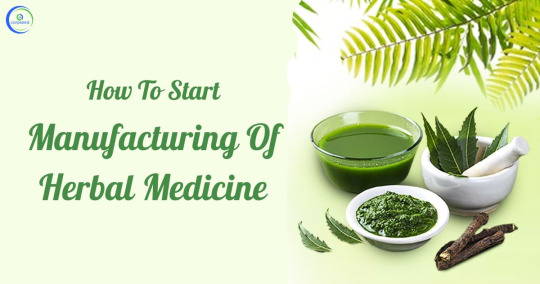
Herb medicines have no side effects and are safer for your health. They are also more effective. You can buy all kinds of herb medicine from the list of herb medicine manufacturers in India at reasonable prices. When it comes to herbs, spices, and health-related medications, you should exercise caution and seek advice from a healthcare professional, especially if you have pre-existing health conditions or are taking other medications.
Listed below are some well-known herbs, spices, and medications with potential health benefits:
Turmeric: Known for its anti-inflammatory properties, turmeric contains curcumin, which may help reduce inflammation and potentially lower the risk of chronic diseases.
Ginger: Often used to alleviate nausea and aid digestion, ginger also possesses anti-inflammatory properties and may help reduce muscle soreness.
Garlic: Garlic has been studied for its potential to lower blood pressure and cholesterol levels. It also contains compounds that may boost the immune system.
Cinnamon: This spice may help improve insulin sensitivity and lower blood sugar levels, making it beneficial for managing diabetes.
Green Tea: Rich in antioxidants, green tea has been associated with various health benefits, including improved brain function, fat loss, and a reduced risk of certain cancers.
Ashwagandha: An adaptogenic herb used in traditional Ayurvedic medicine, ashwagandha may help reduce stress and anxiety levels, improve mood, and enhance cognitive function.
Echinacea: Often used to support the immune system and reduce the severity of cold symptoms, echinacea is believed to stimulate the body's natural defense mechanisms.
Probiotics: These are live beneficial bacteria that can improve gut health and digestion. They're commonly found in fermented foods like yogurt, kefir, and kimchi, as well as in supplement form.
Omega-3 Fatty Acids: Found in fatty fish like salmon, mackerel, and sardines, omega-3 fatty acids are known for their anti-inflammatory properties and may support heart health, brain function, and joint health.
Vitamin D: Essential for bone health and immune function, vitamin D can be obtained from sunlight exposure, certain foods like fatty fish and fortified dairy products, and supplements.
Probiotics: These are live beneficial bacteria that can improve gut health and digestion. They're commonly found in fermented foods like yogurt, kefir, and kimchi, as well as in supplement form.
Medications: Always take medications as prescribed by your healthcare provider. Common medications include those for managing blood pressure, cholesterol levels, diabetes, and other chronic conditions. It's important to follow your healthcare provider's instructions and monitor for any potential side effects or interactions with other medications.
Remember, while herbs, spices, and medications can offer health benefits, they should be used as part of a comprehensive approach to health, including a balanced diet, regular exercise, adequate sleep, and stress management. Always consult with a healthcare professional before starting any new supplement or medication regimen, especially if you have underlying health concerns or are pregnant or breastfeeding. You can get all kinds of herb medicine from the list of herb medicine manufacturers in India at affordable price.
#Herb medicine manufacturers in India#Herb medicine suppliers in India#Herb medicine companies in India
0 notes
Text
Streamlining Wellness: The Role of Ayurvedic Contract Manufacturing in the Health Industry
The health and wellness industry has been known to differentiate within the past few years. Due to the enhancement of the market for natural and herbal products, Ayurvedic products are appreciated and accepted.
At the core of this growth is the concept of ayurvedic contract manufacturing, which is about making products in an efficient and standardized manner and in so doing guarantee that quality products get to the market. Over the course of this blog, the reader shall be enlightened on the importance of Ayurvedic contract manufacturing in the health industry and to businesses and consumers. Returning Ayurveda into the Modern Concept of Wellness The indigenous medicine of India and is over 5000 years old focuses on the holistic approach to fighting diseases. As the practice that uses natural ingredients and integrates non-chemical approaches to health and wellbeing, Ayurveda fits well into global consumer’s trends of healthy living and ecology mindedness.
This ever increasing demand has led to enterprises incorporating Ayurvedic products in their portfolio which include energy boosting healthy supplements and herbal teas, pure Ayurvedic herbal and doctor recommended solutions for skin problems and wellness products to enhance the body’s immune system and increase its efficiency.
Nonetheless, making these products requires some serious problems like how to get original raw materials for manufacturing, conforming with strict industry and legal requirements, and stability. This is where ayurvedic contract manufacturing comes as a middle solution. What is Ayurvedic Contract manufacturing? Ayurvedic contract manufacturing refers to the approach used by producers of Ayurvedic products that rely on particular manufacturers. These manufacturers are involved with raw material procurement right from the formulation side, quality control, packing and in some cases even distribution. It also helps companies to concentrate in branding and marketing while at the same time guarantee that their products conforms to the industry standards.
For example, Ayubal Wellness has gained fame for specializing in the delivery of dependable contract manufacturing solutions . This way, through such companies, brands can produce and deliver good quality Ayurvedic products without having to build a huge base and having to constantly work on gaining expertise. Advantages of Ayurvedic Contract Manufacturing
Cost Efficiency The establishment of Ayurvedic manufacturing units calls for heavy investment in machinery, raw materials and people, and formalities for manufacturing standard compliant ayurvedic products. Outsourcing ayurvedic contract manufacturing helps businesses avoid such expenses so that the resources could be channelled towards other places, such as new product development and promotion.
Quality Assurance Several reputed manufacturers including Ayubal Wellness always stress on quality at every stage of production. When it comes to the procurement of pure herbs, these manufacturing companies do not compromise strictly on the quality of the herbs that they obtain, and their processing procedures are equally rigid and only conform to international standards that will ensure that those herbal products on the market meet the required qualities that will enable them to provide the needed health assistance to consumers.
Regulatory Compliance The Ayurvedic industry has contained different regulations regarding the production of the product with an intention of protecting the consumers over the quality of the product that is being produced in the market. These are well understood by contract manufacturers and the products are made to meet all legal and quality standards as required.
Faster Time-to-Market Companies need to subcontract production to contract manufacturers because they can shorten time to market impressively. This probably holds a lot of importance in the contemporary wellness industry which deserves nothing less than speed to market.
Focus on Core Competencies This makes sense because instead of focusing on the functions that are important to the corporate missions, companies can dedicate effort and attention to functions like brand recognition, market analysis, and product promotion. The Position of Ayurvedic Contract Manufacturing in the Health Market Ayurvedic contract manufacturing is therefore a revolutionary approach in the health industry where traditional practices are met with new customer demands to create affordable quality products for the customer. Here’s how it contributes:
Placing a ‘Real’ Human Element into Focus For consumers in today’s economy, they are savvy and always seek to get to the bottom of things. Some contract manufacturers dealing mainly withAyurveda make sure that the products being developed contain tested raw materials gathered without compromising the concept of Ayurveda.
Application for Growing Business Organisations Start-up and small-scale enterprises are mostly in a fixum when it comes to meeting these growing demands due to constrained resources. Through Ayurvedic contract manufacturing, they are able to expand production while still maintaining their quality and thus be able to challenge popular brands.
Innovative Product Offerings That way, contract manufacturers contribute the special knowledge necessary for engaging such niches, and, therefore, brands can try out new formulations and allow the customers to express themselves. Whether it is herbal supplements, Ayurvedic Cosmetics or wellness beverages companies can transform ideas into products.
Global Outreach Combined with the global demand for Ayurvedic products, use of the contract manufacturers enables brands to penetrate new markets since the manufacturers offer international standards and export procedures. Why Should You Choose To Deal With Well Reputed Manufacturers? The selection process for contract manufacturing partners is most critical in determining the success of the business. These include Ayubal Wellness among others that are known to be providing quality service to their clients. Being more of an adherent to Ayurveda as a family business they assist brands in attaining a good bond with their consumers regarding the qualitative products they produce.
If businesses involve experienced manufacturers, they can guarantee that products created not only have the potential to meet market requirements, but also surpass them as they seek sustainable solutions for the company in future. Future Trends in Ayurvedic Contract Manufacturing As the health industry evolves, Ayurvedic contract manufacturing is expected to adapt and grow in response to new trends: Sustainable Practices: There is a trend towards environment friendly manufacturing processes among the manufacturers to meet the new world agenda that covers sustainability.
Technological Advancements: The use of artificial intelligence and smart machinery in production lines is optimizing production outcome and accuracy. Customized Solutions: Currently there is high demand for wellness products that are targeted towards individual consumer requirements hence the production of equipment for specific consumers needs in society. Conclusion Ayurvedic Contract Manufacturing is most definitely one of the foundations of today’s wellness industry. Therefore it can allow businesses to create high-quality products which can be delivered faster whilst at the same time the management can concentrate on new product development. This has been seen through companies such as the Ayubal Wellness to show how the model benefits brands in a competitive environment.
But as the concept of natural organic approaches being sought after steadily increases we are poised to see Ayurvedic contract manufacturing become a major facet of the future of the health industry. If you are already a recognized brand or you are a newcomer to the market, the professional assistance of contract manufacturers opens up opportunities that are virtually limitless and will facilitate a brilliant start to a uniquely successful business.
0 notes
Text
India's Leading Role in Ayurvedic Medicine Export: A Comprehensive Guide

India has solidified its position as the largest exporter of Ayurvedic medicines, leveraging its rich biodiversity and ancient Ayurvedic heritage. With thousands of medicinal plants and expertise in traditional medicine manufacturing, India guarantees the production of superior herbal products.
This article delves into the top Ayurvedic medicine export from India, export statistics, HSN codes, and essential insights for newcomers and seasoned exporters alike. Let’s explore the thriving global market for Ayurvedic products and the opportunities it presents.
The Global Market for Ayurvedic Medicines
Ayurveda, with its roots stretching back thousands of years, offers a holistic wellness system combining herbal remedies, dietary guidance, and lifestyle practices. Its effectiveness in improving health and treating various ailments has driven global demand for authentic Ayurvedic products.
As consumers grow wary of synthetic chemicals and their potential side effects, they increasingly turn to natural and sustainable alternatives like Ayurveda. By integrating time-tested methods and natural cures, Ayurveda continues to inspire a global audience seeking optimal health and vitality.
India's Ayurvedic product market is projected to grow exponentially, from $7 billion (₹57,450 crore) in 2024 to $16.27 billion (₹1.2 lakh crore) by FY28. This growth underscores the immense potential of this industry both domestically and internationally.
Production of Ayurvedic Medicines in India
India is the world’s largest producer of Ayurvedic medicines, boasting over 3,000 medicinal plant species and more than 6,000 herbs. The nation houses over 7,800 production units that manufacture traditional herbal formulations and natural health products, requiring over 2,000 metric tons of raw medicinal plants annually.
Leading producers include Sigma Softgel & Formulation, Fortune Labs, Uniray Lifesciences, Zoic Pharmaceuticals, Navayur Herbal, Hamdard Laboratories, Dabur India Ltd., and Vicco Laboratories. These companies exemplify India's dominance in the Ayurvedic industry.
Ayurvedic Medicine Export: Key Statistics
In the fiscal year 2023–2024, India exported $651.17 million worth of Ayurvedic and herbal products, marking a 3.6% increase from the previous year. As per Ayurvedic medicine export data during this period, 10.63 crore kilograms of these products were exported, with 2,479 shipments handled by 121 Indian exporters catering to 238 international buyers. This represented a notable 24% growth in shipments.
HSN Codes for Ayurvedic Medicine Export
The Harmonized System Nomenclature (HSN) code for Ayurvedic medicines is 30039011. Other codes related to traditional medicine exports include:
30039012: Unani system medicaments
30039013: Siddha system medicaments
30039014: Homeopathic system medicaments
These codes help streamline the export process by clearly identifying products. Exporters can access detailed information about these codes through platforms like Seair Exim Solutions.
Top Destinations for Ayurvedic Medicine Exports
India’s top export destinations for Ayurvedic medicines include the United States, Germany, Italy, China, UAE, France, the United Kingdom, Nepal, Australia, and Russia. In 2023–2024, these countries accounted for approximately 63.3% of India’s total Ayurvedic exports, with the combined value reaching $412 million—a 5.10% increase from the previous year.
The United States remains the largest market, importing $183.30 million worth of Ayurvedic products, followed by Germany and Italy. This highlights the growing global appreciation for India's natural and herbal remedies.
Popular Ayurvedic Products Exported from India
India exports a wide range of Ayurvedic formulations, including:
Essential Oils: Derived from organically grown flowers and herbs, oils like sandalwood, cinnamon, basil, and rose are popular in aromatherapy.
Skincare Products: Ayurvedic skincare items such as hair masks, face masks, toners, serums, and oils are in high demand globally.
Health Supplements: Products like turmeric, neem extracts, ashwagandha, chawanprash, and herbal teas have seen increased demand due to growing health consciousness post-COVID-19.
Mandatory Documentation for Exporting Ayurvedic Products
Exporting Ayurvedic medicines from India requires specific licenses and certifications. Key documents include:
Import Export Code (IEC)
AYUSH Product Approval (for manufacturers)
Free Sale Certificate
FSSAI License
FDA Registration
NPOP Certification (National Program for Organic Production)
Certificate of Origin
Phytosanitary Certificate
These ensure compliance with international standards and smooth cross-border trade.
Major Ayurvedic Medicine Exporters in India
Prominent Ayurvedic medicine exporters include Sreedhareeyam Ayurveda, Arogya Formulations Pvt Ltd., Wilson Drugs, LKR Products Pvt. Ltd., and Amrut Herbal Industries. These companies, alongside others, contribute significantly to India's Ayurvedic exports.
Unlock Export Opportunities with Reliable Data
To succeed in the Ayurvedic export industry, understanding market trends and export data is crucial. Platforms like Seair Exim Solutions provide comprehensive trade insights, including export data, buyer details, and product trends across over 100 countries. For real-time information and a free live demo, connect with Seair today.
The future of Ayurvedic medicine export from India is bright, driven by rising global demand for natural and sustainable health solutions. Embrace this opportunity and contribute to India's legacy in wellness and traditional medicine.
#top ayurvedic medicine export from India#ayurveda export from India#export ayurvedic medicines from India#ayurvedic medicine export data#ayurvedic medicine exporters
0 notes
Text
Price: [price_with_discount] (as of [price_update_date] - Details) [ad_1] From the brand Hathi Masala Hathi Masala is India's largest spice processing company that has all its processing facilities in-house. Hathi Chaas Masala Butter Milk Masala to enhance the taste of Buttermilk (Chass). when it comes to Hathi Masala you will need lesser quantity of Spices then what you need of other spices. Not only that, at lesser quantity you will be amazed with its excellent taste. Our hand-picked spices are cleaned and processed by experts having deep knowledge in field of spices, moreover who are passionate about masalas. More efforts are given in test process of all spices for complimenting your kitchen with perfect taste, time you cook. Hathi Masala product Are our products high quality? Our products are formulated and processed under the supervision of a skilled team of professionals by using high quality pure ingredients. What makes our products unique? Material is procured from reliable and certified vendors of the market in compliance with international quality standards. Why we love what we do? ULTRA FINE GRINDING Our grinding machines grind material at high speed allowing very fine even granulation with perfect texture for variety of spices. This process allows spices to get sprinkled uniformly. PURE & UNADULTERATED NO ARTIFICIAL COLOR ADDED Peepramul Powder is often used as a spice in Indian recipes Drinking as a tea is good for cold Good Health Ganthoda, an Indian spice ( pipramool / peepramool ) Peepramul Powder is often used as a spice in Indian recipes. Drinking as a tea is good for cold. Formulation of Various Spices And Herbs Like Satavari, Ashwagansha, Salampanjo , Safedmusli, Dry Ginger, Mukkuna Seeds And Other Ingredients Are Rich Of Ayurvedic Medicinal Properties. It is typically used in powder form with an equal mix of ginger powder, jaggery and water to help with gastric troubles and joint pains. Helps Improve Immunity Package Contains : 1 pack of 100 (g) Ganthoda Powder. Store it in a air tight glass or Stainless Steel container and Vessel. [ad_2]
0 notes
Text

Ayurveda, a vedic way to health and wellness, is the most ancient medical system being practiced all over the world. We prefer Ayurveda over allopathic medicine, as it gives a complete natural and personalised approach to health and wellness. Ayurvedic treatments are known for their minimum or no side effects compared to the side effects of allopathic medicines. Here, we will list the Top 10 Ayurvedic Companies in India. This list is about the Top Ayurvedic Pharma Companies in India.
Top 10 Ayurvedic companies in India are the best herbal companies that manufactures ayurvedic medicines, herbal remedies, skincare, hair care products and dietary supplements. Ayurvedic companies follow the ayurveda methods, which focuses on maintaining the balance of mind and body for overall health. These companies source their raw materials from natural sources and follow quality control measures to ensure their purity and effectiveness.
Ayurveda believes the way to wellness is not just through medicines but through a balanced lifestyle involving healthy food & activities. The goal of Ayurveda is to maintain or restore balance within the doshas to promote health. It is based on the fact that the body has a balance of three essential “doshas” (energy systems) that must be in balance for optimal health: Vata, Pitta and Kapha. An important part of Ayurveda is the concept of “tapas”, which translates to “heat”. Tapas means to maintain a state of physical, mental and spiritual heat. It is a complete system of traditional medicine and healthcare that originated in India. It uses plant-based raw materials, such as herbs and spices, to treat health conditions. Examples of Ayurvedic products are Triphala churna (a herbal supplement for digestion), Brahmi oil (used for hair growth and nourishment) and Chyawanprash (a herbal jam with immune-boosting properties).
The Indian ayurvedic products market is worth INR 626 Billion in 2022, and it is expected to grow at a CAGR of 19.3% to reach INR 1,824 Billion by 2028, as stated in a report.
Top Ayurvedic Companies list in India
1– Dabur India Ltd
Founded: in 1884
Revenue: 11,281 crores INR (FY22, US$1.4 billion)
Dabur is one of the oldest Top 10 Ayurvedic Companies in India. Dabur is an Indian multinational consumer goods company and India’s largest manufacturers and distributors of herbal products headquartered in Ghaziabad. It was founded by S. K. Burman.
Dabur has become a household name across the country. They have been in the industry for several decades and have a wide range of Ayurvedic products available. It manufactures traditional medicines, including Chyawanprash, honey and personal care items, ayurvedic cosmetics, skin care lotions and oils.
It also distributes drugs from various other pharmaceutical companies across India. Dabur is listed on the BSE and NSE and is headquartered in Ghaziabad, India.
2– Baidyanath
Founded: in 1917
Headquarters: Jhansi
Baidyanath Ayurveda is one of the top 10 ayurvedic companies in India with a legacy of over 100 years. Pandit Ram Narayan Sharma and his brother Pandit Ram Dayal Joshi were the owners of Baidyanath which was started in 1917. The company is in manufacturing, exporting and distributing herbal medicines, cosmetics and health supplements. For orders go to baidyanath.co.in
Company has its own manufacturing units in India and is also a contract manufacturer of other pharmaceutical brands. It also exports Ayurvedic products to other countries.
Baidyanath Ayurvedic Company has different manufacturing units located at various locations in India.
All the plants are equipped with modern production facilities and state-of-the-art technology to ensure high quality standards of the products produced by the company.
3– Patanjali Ayurveda
Founded: in January 2006
Revenue: 9,872 crores INR (US$1.2 billion, 2021)
Patanjali was founded by Baba Ramdev in 2006, that offers a vast range of Ayurvedic products at affordable prices. They have everything from food items to cosmetics. Patanjali is an Indian multinational company that manufactures and markets ayurvedic products, foods, toiletries and other products. Patanjali Ayurved Limited has gained immense popularity with its diverse products including Patanjali Amla Juice, Patanjali Dant Kanti toothpaste and Patanjali Aloe Vera Gel.
Company’s products are sold through a network of more than 11,000 retail outlets in India and abroad. Patanjali products are sold online as well as in-store. They are available at all major e-commerce platforms like Amazon, Flipkart and eBay.
The company has its own brand stores across several cities in India. They also sell their products to other retailers through wholesale deals.
As of February 2019, the company’s products were sold online or in-store at over 13,400 stores across India. They are sold in over 100 countries worldwide through more than 50 distributors.
4– Nutica Herbocare
Founded: in 2012
Headquarters: Panchkula
Nutica Herbocare is the best Ayurvedic PCD pharma company in India that provides products to maintain health and promote wellness. It is one of the Top 10 ayurvedic companies in India. If you’re looking for an ayurvedic franchise company in India then they may be worth trying.
Nutica products are also available online at Amazon. Company has a strong focus on several innovative products in its portfolio.
5– Hamdard Laboratories
Founded: in 1906
Headquarters: Delhi
Hamdard Laboratories is an oldest best ayurvedic company known for its Unani medicines and natural healthcare products. They have a range of Ayurvedic and Unani products. In 1906, in undivided India’s capital, Delhi, Hakeem Hafiz Abdul Majeed, laid the foundation of Hamdard Dawakhana.
The company offers ayurvedic treatments and products to the Indian market. Hamdard has one of the largest Ayurveda product range in India and offers a range of categories for customers ranging from beauty care to health management.
Company is well known for its ayurveda products such as classical medicines and OTC products.
6- Kerala Ayurveda Ltd
Founded: in 1945
Headquarters: Ernakulam
Kerala Ayurveda was founded at Kochi, Kerala, India in 1945 by Late Vaidyan K G K Panicker, the renowned Ayurvedacharya. Kerala Ayurveda Limited is a best ayurvedic company backed by advanced technology and highly qualified dedicated staff. It is a listed Ayurveda Company in India & US with a rich Heritage of over 80 years.
7– Zandu Care
Founded: in October 1910
Headquarters: Kolkata
Zandu Realty (formerly Zandu Pharmaceutical Works Limited) is an international pharmaceutical company based in Kolkata, India. They manufacture and deals in medicinal preparations. Company was founded in 1910 with the aim to bring pure, authentic and effective ayurvedic medicines at affordable prices. Zandu Care is one of India’s leading top 10 ayurvedic companies in India.
They provide high-quality natural products which includes the iconic Zandu Balm, Zandu Chyavanprash Avaleha, Zandu Kesari Jivan and Zandu Pancharishta.
8– Vicco Laboratories
Founded: in 1952
Headquarters: Mumbai
Vicco Laboratories is a personal care product company that manufactures ayurvedic and natural products. Vicco’s products include herbal toothpaste, herbal toothpowders, mouthwash, deodorant and herbal makeup, sandalwood oil based skin cream, herbal shaving creams and a natural ayurvedic pain relief cream Vicco Narayani.
Their products are made with natural ingredients like turmeric, coconut oil, stevia extract and other vitamins to help keep your skin healthy and fresh. All products have been tested in laboratory by the Food and Drug Administration (FDA).
Vicco is committed to deliver safe and effective products that help you look and feel great. For more information visit Vicco Laboratories.
9– Himalaya
Founded: in 1930
Headquarters: Bengaluru
Himalaya Wellness Company (formerly Himalaya Drug Company) is an Indian multinational pharmaceutical company based in Bengaluru, Karnataka, India, that has been serving customers for over 90 years.
Himalaya products are made with natural ingredients that have been proven to be safe for use on the skin. Their product portfolio includes herbal healthcare, personal care, baby care and wellness products. All products are free from parabens, mineral oil, silicones and other harmful additives.
10– Charak Pharma
Founded: in 1947
Headquarters: Mumbai, Maharashtra
Charak Pharma is the oldest and one of the Top 10 Ayurvedic Companies in India, with over 74 years of experience. They specializes in ayurvedic formulations with traditional knowledge and scientific research. The journey of Charak Pharma began in the year 1947 with a vision to improve the quality of life by making herbal healthcare available internationally. They have a wide range of products for respiratory health, liver care, digestive health and skincare.
They ensure that the customer needs are satisfied with a scientific, well-documented, evidence-based and standardized formulation. Their mission is to expand the ayurvedic range to make it available everywhere.
0 notes
Text
Profitable Products to Include in Your Ayurvedic PCD Franchise

An Ayurvedic PCD franchise is an obvious profit-generating franchise in the pharmaceutical industry. The popularity of herbal and Ayurvedic products has been skyrocketing in India. From urban cities to rural areas, everyone is using herbal and Ayurvedic products for their well-being. The usage ratio of herbal and natural products is constantly rising among people in India. Due to our ancestry, ayurvedic medicines have been incorporated into our roots. We believe in the natural healing system and we are fond of practising the herbal and Ayurvedic medicine system for root cure of various diseases. This popularity and sales have made Ayurvedic products the best choice among franchisees.
Those who are open to choosing an Ayurvedic franchise business must select the right products and medicines in order to convert efforts into profitability. Let's see which herbal and Ayurvedic products have decent market demand and thorough supply in our country.
Best product line for Ayurvedic PCD franchise
If you take a close look at the pharma market and apply extensive research, you will find that skincare and haircare products have the biggest market share in the herbal and Ayurvedic market. Specifically, women in our country are obsessed with herbal and natural ingredients in their skin and hair products. Products like skin creams, moisturisers, lotions, shampoos, and hair oil are the most popular items in the herbal category in India.
This is why choosing skin and hair care products for your franchise business is a guaranteed ticket to success in the pharma industry. An Ayurvedic franchise company that can provide you with a wide range of these products will be a boon to your franchise business. For sure, in our opinion too, the hair care and skin care ranges are best suited for an ayurvedic franchise business.
Best Ayurvedic products manufacturing company in India
Which Ayurvedic product manufacturing company can provide the best products for a franchise business? Well, this is the most frequently asked and crucial question that every budding franchisee asks. And the answer is Casca Remedies. This company makes herbal and Ayurvedic products from original herbs and ingredients. They are highly ethical in their business applications. We are indeed the most trustworthy pharma company in the franchise world in terms of product quality and cost efficiency.
Owning our Ayurvedic PCD franchise is an honor that every franchisee wants to bear. We have the widest range in our exclusive collection of herbal and Ayurvedic products. Just choose your desired product in the skincare or hair care category and cement your place in the evergreen pharmaceutical industry of India.
#Ayurvedic PCD franchise#Ayurvedic PCD franchise company#Ayurvedic PCD#Ayurvedic franchise company#Ayurvedic franchise company in india
2 notes
·
View notes